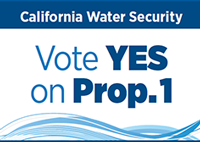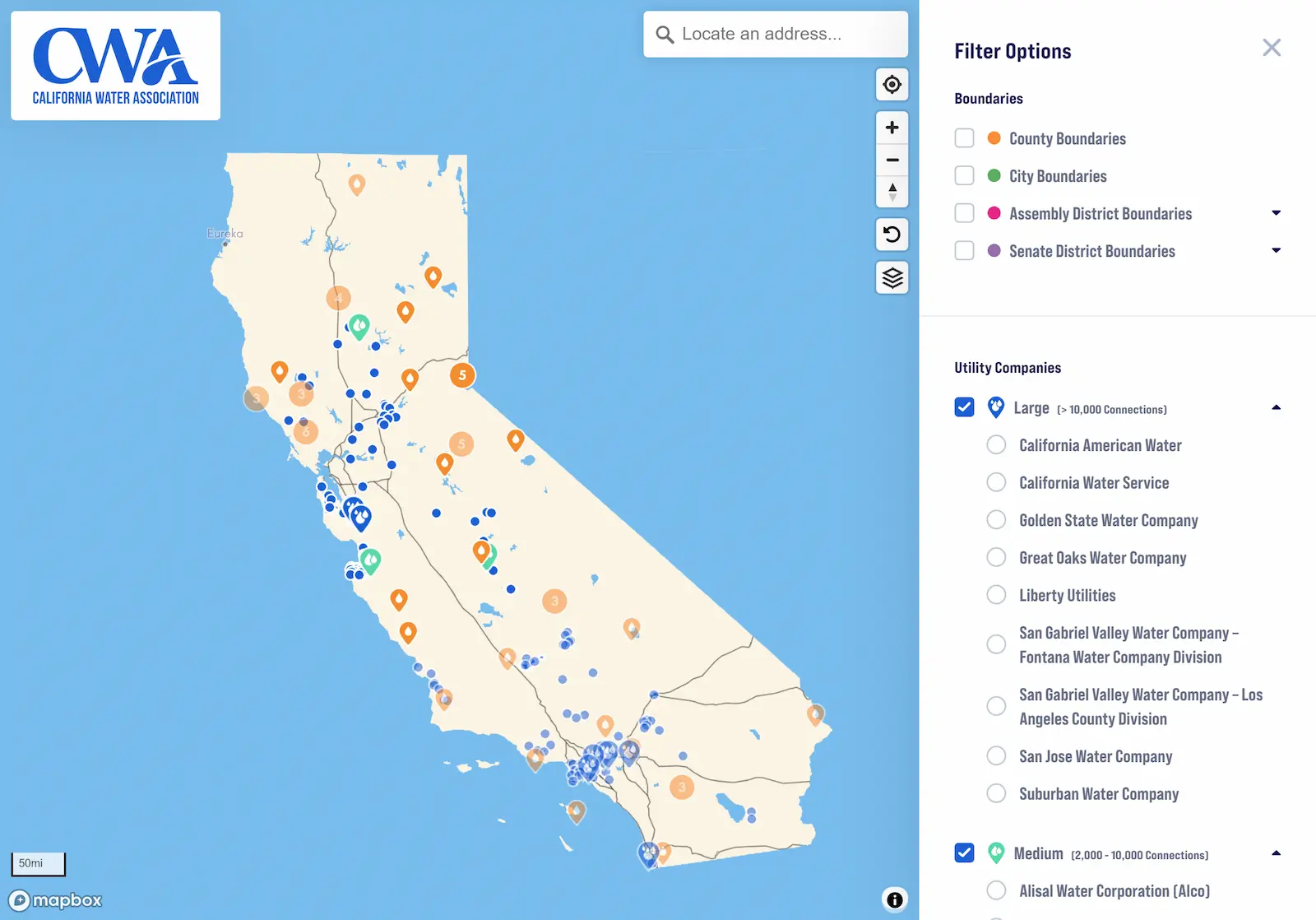At its September 16 Board of Directors meeting, the California Water Association (CWA) agreed to support Proposition 1, the “Water Quality, Supply and Infrastructure Improvement Act of 2014.” Passed by the state Legislature as Assembly Bill 1471 (Rendon) on August 13, 2014, and signed by the governor on the same day, the $7.545 billion water bond will, if passed by the voters on November 4:
- Authorize $7.12 billion in general obligation bonds for state water supply infrastructure projects such as surface and groundwater storage; ecosystem and watershed protection and restoration; drinking water protection; water supply management; water recycling and advanced water treatment technology; and flood control.
- Reallocate $425 million of unused bond authority from prior water bond acts for similar purposes.
- Appropriate money from the General Fund to pay off bonds.
- Require certain projects to provide matching funds from non-state sources in order to receive bond funds.
Specific investments in Proposition 1 include:
- $520 million to improve water quality for “beneficial use,” including for reducing and preventing drinking water contaminants, disadvantaged communities and the State Water Pollution Control Revolving Fund Small Community Grant Fund.
- $1.495 billion for competitive grants for multi-benefit ecosystem and watershed protection and restoration projects.
- $810 million for expenditures on, and competitive grants and loans to, integrated regional water management plan projects.
- $2.7 billion for water storage projects, dams and reservoirs.
- $725 million for water recycling and advanced water treatment technology projects.
- $900 million for competitive grants and loans for projects to prevent or clean up the contamination of groundwater that serves as a source of drinking water.
- $395 million for statewide flood management projects and activities.
For the first time in a statewide water bond, investor-owned water utilities (IOUs) regulated by the California Public Utilities Commission will be eligible to apply for bond funds for needed capital projects that go beyond traditional supply sources and distribution needs, thus lessening the cost burden on their customers. Despite the fact that customers of IOUs pay equally for general obligation bonds through their taxes, in the past they have been penalized because IOUs often were not eligible to apply for grants associated with such bonds.
Fortunately, in January 2014, CWA was successful in getting the following amendment added to the water bond legislation, which became part of the general provisions in the final bill signed by the governor:
79712. (a) Eligible applicants under this division are public agencies, nonprofit organizations, public utilities, federally recognized Indian tribes, state Indian tribes listed on the Native American Heritage Commission’s California Tribal Consultation List and mutual water companies. (b) (1) To be eligible for funding under this division, a project proposed by a public utility that is regulated by the Public Utilities Commission or a mutual water company shall have a clear and definite public purpose and shall benefit the customers of the water system and not the investors.
CWA member companies should now able to access funding in three distinct areas of Proposition 1: groundwater contamination remediation; water recycling and advanced water treatment technology projects; and improving drinking water quality in small, disadvantaged communities served by these utilities. Additionally, as part of integrated regional water management plans, IOUs may have access to competitive loans and grants for these regional projects.





